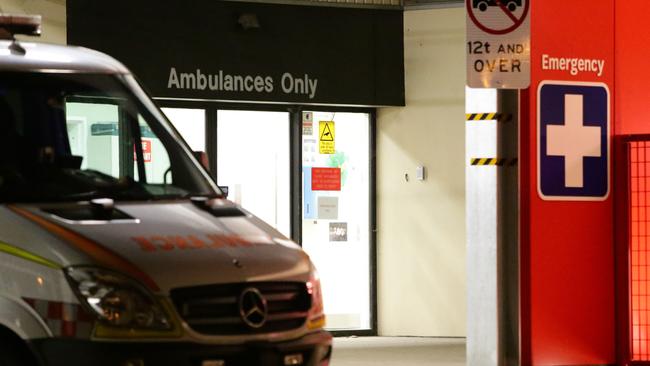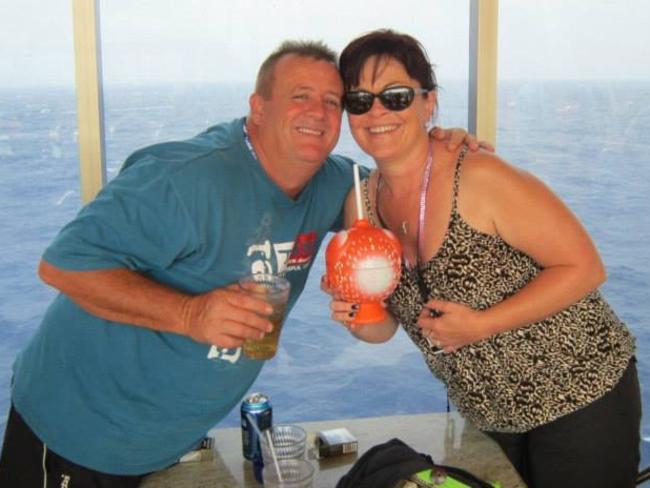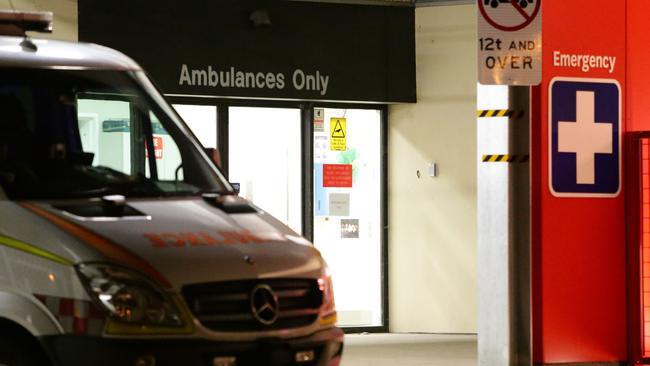Ice, alcohol turning hospital ERs into war zones as parents fear for children’s safety
DOCTORS say our hospitals are now so violent that frightened parents are now walking out with their sick children rather than risk being caught up in ice and alcohol-fuelled rage attacks.

NSW
Don't miss out on the headlines from NSW. Followed categories will be added to My News.
A NURSE who had a man charge at her with a carving knife, another who was chased out of her own hospital by a violent patient and a doctor who was punched in the face because he wouldn’t fetch a drunk patient a sandwich are among the terrifying list of incidents reported by emergency department medicos as the ice epidemic takes hold.
Doctors say hospitals are now becoming so violent that frightened parents are now walking out with their sick children, preferring to take them home and risk further health problems than have them sit and wait for expert care as ice addicts and alcohol-induced trouble makers run riot.
It follows an incident at Nepean Hospital this week, when Michael de Gruzman is alleged to have threatened paediatric registrar Ma Guinto with a pair of scissors and shot police officer Senior Constable Luke Warburton following an ice binge.

Dr Guinto has not returned to work since the incident and Senior Constable Warburton is recovering from surgery on his wounded thigh.
The same bullet is also alleged to have hit security guard Barry Jennings, from Penrith, whose family yesterday released a statement saying he had undergone surgery and was recovering well.
“He is in high spirits as he is surrounded by family, friends and colleagues,” it said.
The Australasian College for Emergency Medicine yesterday revealed some of the scores of violent incidents against doctors, nurses and triage staffers in what they claim has become a daily occurrence in hospitals all over the country.
Public health committee chair Diana Egerton-Warburton told the Daily Telegraph an incident like this week’s alleged shooting could have happened “anywhere around Australia any day of the week”.
Associate Professor Egerton-Warburton said governments needed to consider around-the-clock security at hospitals, better CCTV and a trial of lapel cameras for staff in a bid to quell the violence.
“People that are on ice can be very scary to deal with for clinicians doctors and nurses,” she said.

“And people they are afraid to stay in the emergency department and if they’ve got a sick child they actually choose to leave because they are worried about violent and aggressive people.
“It might be ice or it might be ice and alcohol or ice and marijuana. The issue is often multiple drugs and more often including alcohol.”
A review of hospital security arrangements has also been backed by the Australian Medical Association which has suggested the introduction of specially-trained “Rapid Response” teams to control drug-affected, drunk and mentally ill patients.
It follows a similar appeal from the Health Services Union this week, who want security staff to have increased powers to “restrain and detain” people in a measure to stamp out the growing violence.
The union will meet with Health Minister Jillian Skinner to discuss the matter next week.




